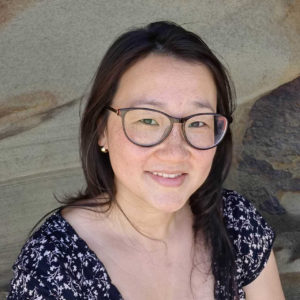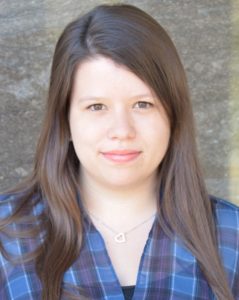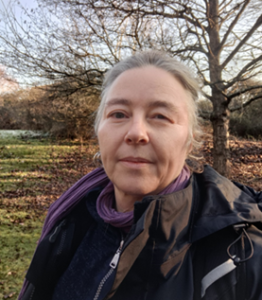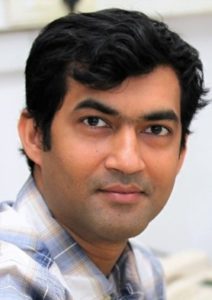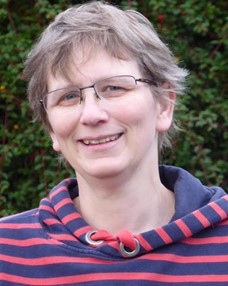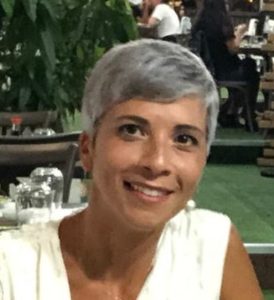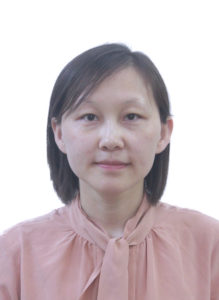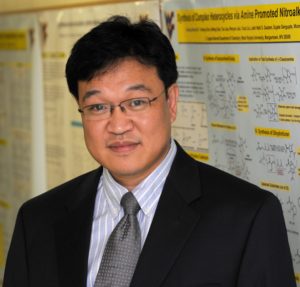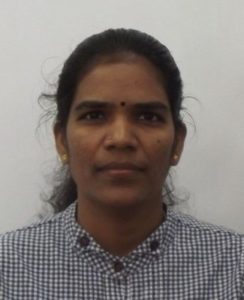To further thank and recognise the support from our excellent reviewer community, we are highlighting reviewers who have provided exceptional support to the journal over the past year.
This month, we’ll be highlighting Owen Curnow, Jenny Zhang, Shuichi Hiraoka and Niveen Khashab. We asked our reviewers a few questions about what they enjoy about reviewing, and their thoughts on how to provide a useful review.
Owen Curnow, University of Canterbury. Professor Curnow’s research focusses on novel materials, most recently ionic liquids (and their applications). He also has an interest in simple inorganic species such as polyhalides and chloride hydrates.
Jenny Zhang, University of Cambridge. Dr Zhang’s team develops new toolsets to more effectively exchange energy with living systems, in particular those that perform photosynthesis. They do this to probe into complex biological processes, and to build green energy generation technologies.
Shuichi Hiraoka, University of Tokyo. Professor Hiraoka’s research interests are in revealing molecular self-assembly mechanisms to find general principles underlying self-assembly, and in the kinetic control of self-assembly to generate complicated, metastable assemblies that cannot be obtained under thermodynamic control.
Niveen Khashab, King Abdullah University of Science and Technology. Professor Khashab’s research focuses on the design and synthesis of stimuli responsive materials that utilise self-assembly and molecular recognition to be used in smart encapsulations, separations, and composites.
What encouraged you to review for Chemical Science?
Jenny Zhang: I have a lot of respect for Chemical Science as a journal. It publishes work that is truly value-adding and of high standard, rather than work that is trendy or easy to sell. I feel honoured to play a role in helping it to maintain its high integrity and standing.
Shuichi Hiraoka: Peer review is one of the important activities in science to improve research and papers by receiving opinions from other researchers. I look forward to the papers submitted to Chemical Science because they give me a glimpse of new trends in chemistry.
Niveen Khashab: Chemical Science always publishes cutting edge research and it is a journal that I strive to publish in as well so really reviewing for Chemical Science is a treat!
What do you enjoy most about reviewing?
Owen Curnow: Learning about the latest research, but also the intellectual challenge of critically assessing a manuscript.
Shuichi Hiraoka: The level of papers submitted to Chemical Science is high, so of course I enjoy the content of the papers themselves, but I sometimes enjoy thinking about what other experiments I would come up with if I were one of the authors of this paper, and what other conclusions I could draw from the results.
Niveen Khashab: The story! Manuscripts that take you through their story and their data are the best and easiest to follow.
What makes a paper truly stand out for you when reviewing a paper?
Owen Curnow: Aside from the novelty, competency and clarity of the work, honesty in the authors presentation and critical assessment of their own work. A conclusion that also identifies any uncertainties and deficiencies that can lead to further research.
Shuichi Hiraoka: While novelty and impact go without saying, I would like to especially recommend the publication of papers that are not bound by current trends in chemistry but are expected to contribute to the future development of chemistry, such as the establishment or discovery of new concepts, methods, or principles.
What advice would you give a first-time author looking to maximise their chances of successful peer review?
Jenny Zhang: Take time to make clear, well balanced, and easy-to-understand figures. Figures are the most important features of a paper, and some people will not bother reading the text. Producing effective figures (to show results) and schemes (to explain results) that are concise yet communicates necessary details should be prioritised.
Niveen Khashab: Keep it simple! We have probably heard this line a million times but really this works! Also invest more in figures and visuals as this can make the science more visible.
How do you typically prepare to write a review for Chemical Science?
Owen Curnow: When writing the report I start with a very brief description of the work and then summarise how competent the experimental work appears to be and whether the manuscript is well-written or not. I will then detail any major issues. Checking that the discussion and conclusions make sense in terms of the results is critical. I will then summarise my reason(s) for rejecting or accepting the manuscript. If I’m going to reject a paper, I will make suggestions on how it can be improved for publication in this or some other journal. I list the minor corrections at the end.
Are there any steps that reviewers can undertake to improve the quality of their review?
Jenny Zhang: I find it highly valuable to involve students and/or postdocs in the review. After everyone has reached a decision, I like to have a discussion together about the strengths and weaknesses of the paper. It’s a good learning experience for them to better understand how to judge the quality of a piece of work and how to write a paper. I find that they would often read the paper more carefully and in complementary ways to me and will pick up all sort of things that I would have otherwise missed.
Tune in next month to meet our next group of #ChemSciReviewers!
If you want to learn more about how we support our reviewers, check out our Reviewer Hub.
Interested in joining our ever-growing reviewer community? Apply here now!



